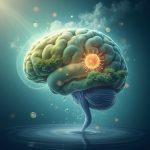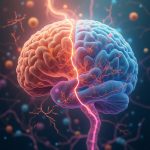Take a moment to consider the last time you noticed how radiant the night has become in our modern cities. Neon lights, LED streetlamps, glowing screens — light pollution has become a staple of urban life. But what are the unseen consequences of this artificial illumination? Neuroscientist Dr. Randy J. Nelson has dedicated his research to uncovering these effects, revealing just how this modern marvel can quietly disrupt our lives from the inside out.
iN SUMMARY
- ? Artificial light at night can negatively impact your brain, mood, and metabolism, according to neuroscientist Dr. Randy J. Nelson.
- ? Exposure disrupts circadian rhythms, which are crucial for maintaining health and well-being.
- ? Various studies have shown links between light exposure and immune system compromise and mood disorders.
- ? Simple changes, like dimming bedroom lights or adopting healthier light habits, can mitigate these effects.
The Reality of 24/7 Illumination
The convenience of light at the push of a button is undeniable. Yet, as Dr. Nelson explains, "the prevalence of artificial light at night disrupts our biological clocks, impacting everything from our sleep to our metabolism" (according to Science Daily). This disruption, often termed 'light pollution', extends far beyond aesthetic concerns, penetrating into our very biology.
In Calgary or Boston, the impacts are uniform: prolonged exposure to artificial light, especially blue light emitted by screens and some LED lights, interferes with the natural production of melatonin, a hormone that regulates sleep-wake cycles.
Tracing the Pathway of Disruption
Dr. Nelson's research brings attention to the intricate dance of circadian rhythms, which control the timing of various biological processes. These rhythms align closely with the cycle of day and night, signaling when to wake, eat, and rest. When circadian rhythms are disturbed, it’s not just sleep that suffers. Long-term consequences can include metabolic diseases such as obesity and diabetes, mood disorders, and even a compromised immune system.
This biological turbulence is not merely academic observation. Clinical trials have persistently shown that individuals exposed to high levels of artificial light at night report increased feelings of stress and anxiety. For instance, a sleeper under constant barrage from external artificial lights, like those in vibrant cities (New York), may find themselves caught in a vicious cycle of insomnia and stress.
Practical Steps to Mitigate Effects
But what can we do? Here’s where everyday solutions become part of this illuminating conversation. Try making the following adjustments to your living space and routines to decrease your exposure:
- Switch off unnecessary lights after a certain hour. Consider using lampshades or curtains to block external sources at night.
- Replace standard light bulbs with warmer, dimmable options available on Amazon.
- Invest in an eye-friendly reading lamp to reduce blue light exposure from screens; check out the options here Amazon.
Reshaping Our Approach to Lighting
Dr. Nelson leads by example, bridging his lab research with actionable community guidance. He mentors the next generation of scientists at universities globally, inspiring innovation with a humanistic focus. His work extends into community health initiatives, advocating for urban designs that respect natural darkness, especially in places with high-density populations like Los Angeles.
Lighting the Path Ahead
Light is a cornerstone of civilization, yet its encroachment into the night requires mindfulness. This enlightening exploration challenges us to reconsider how artificial light integrates into our daily lives. By adopting healthier lighting habits, we take the first steps toward aligning our modern habits with our ancestral rhythms. What could be more comforting than knowing you can illuminate your world without dimming the vitality of your health?
Dr. Nelson's insights urge us to ponder: could it be time to reassess how brightly we illuminate our nights? What small changes could you make to safeguard your health against the widespread influence of night lighting? Share your thoughts and join the discussion with the iNthacity community. Become a resident, contribute your thoughts, and help shape our collective future in the "Shining City on the Web".
As we embrace these changes, let’s spark a change as bright as our cityscapes. After all, learning to switch off the lights might just be the brightest idea for our health yet!
Disclaimer: This article may contain affiliate links. If you click on these links and make a purchase, we may receive a commission at no additional cost to you. Our recommendations and reviews are always independent and objective, aiming to provide you with the best information and resources.
Get Exclusive Stories, Photos, Art & Offers - Subscribe Today!
























Post Comment
You must be logged in to post a comment.